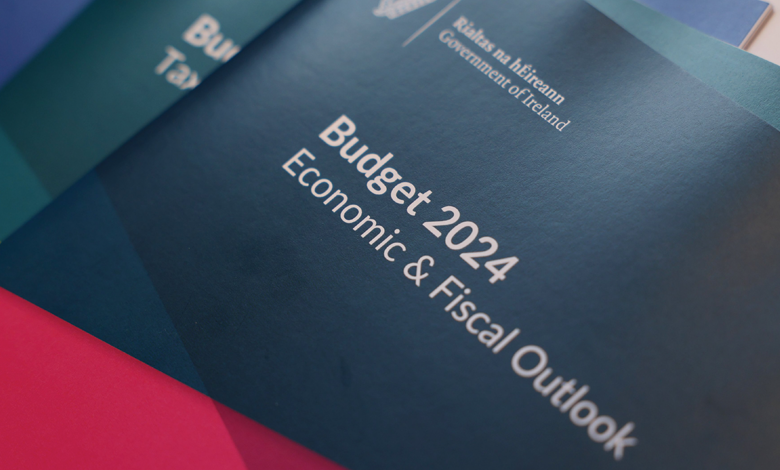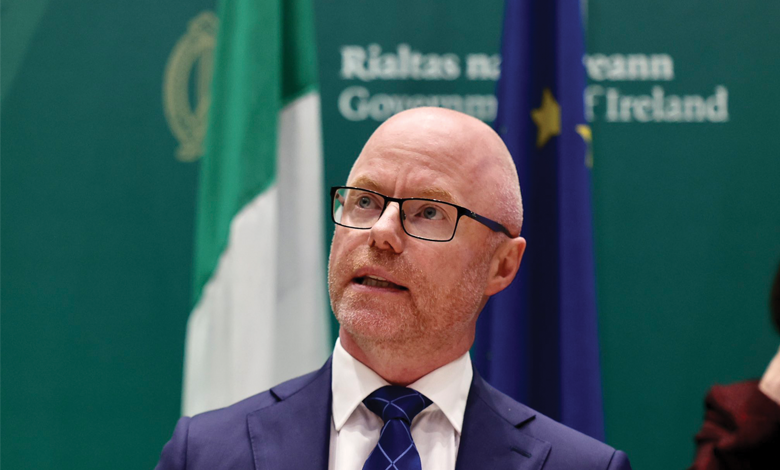Budget 2024 delivers real terms funding cut for Irish health sector

In a challenging budget for the health sector, an €808 million increase in total cash terms represents a real-terms cut.
Among the headline figures arising from Budget 2024 from the perspective of the health sector was the decrease in the amount of money made available for new measures. While the vast majority of any health budget is dedicated to the maintenance of existing services, Budget 2024’s amount for new measures fell to €100 million from Budget 2023’s €250 million; this is despite an €808 million of core funding increase from 2023 Mid-Year Expenditure Report (MYER) levels. With Ireland’s inflation rate for 2023 predicted to be between 5.3 per cent and 6.4 per cent, this will mean that the 4.2 per cent increase in core funding will represent a cut in real terms.
While this budget is indeed an increase in flat cash terms when compared with the 2023 MYER, it is also a decrease in flat cash terms when compared with Budget 2023. With a total allocation of €22.5 billion, Budget 2024 sees healthcare take on a decrease of almost €1 billion from Budget 2023’s level of €23.4 billion health funding, a 3.8 per cent fall in funding. Core health funding has also seen a fall from €21.533 billion in Budget 2023 to €21.456 billion in Budget 2024, a much smaller decrease of 0.36 per cent.
Details on what this funding would be spent on were scant on Budget day, with Minister for Public Expenditure, NDP Delivery and Reform Pashal Donohoe TD stating the €808 million would be dedicated to addressing “demographic and service pressures” and that €1.23 billion of capital funding was being provided as part of the National Development Plan under its provisions for the delivery of additional health infrastructure.
In a further media briefing the day after the announcement, the Department of Health detailed measures to be provided under Budget 2024 funding, such as the creation of a Health Resilience Fund, which will “support service delivery in response to high inflation and increased patient demand among an expanding and ageing population”. Other measures include: €500 million to tackle waiting lists, including the opening of six new surgical hubs; expansions of free contraception to include women aged between 17 and 31; the recruitment of additional staff for child and adolescent mental health services teams; the first full year of the publicly funded IVF services; and a €36.3 million package of surge measures to respond to periods of heightened demand.
“Like this year [2023], it is entirely likely that a supplementary budget will be required next year because of healthcare inflation and patient demand.”
Minister for Health Stephen Donnelly TD
In his speech, Donohoe stated that Ireland has seen a level of health spending “without precedent” in the three-and-a-half years from the onset of the Covid-19 pandemic to the October 2023 Budget day. Pointing to the provision of 2,500 additional hospital beds, the recruitment of 22,000 additional health staff, the cutting of costs for patients, and increased GP access, he said that Budget 2024 would continue this high level of investment.
Overspend
2024 will have lower levels of funding in both total cash and real terms when compared with 2023. Despite this, the health budget for 2023 was significantly overspent, with a supplementary budget necessary at year-end. While estimates at the time of the unveiling of the Budget stated that the supplementary budget would be at least €1.1 billion, the supplementary estimates announced by Donohoe in November 2023 included €960 million of health spending.
In the wake of Budget 2024, Minister for Health Stephen Donnelly TD told The Irish Times that he believes that another supplementary budget will be required at the end of 2024: “Like this year [2023], it is entirely likely that a supplementary budget will be required next year because of healthcare inflation and patient demand.”
It is understood that the Department of Health sought extra funding of over €2 billion for the maintenance of the existing level of services from the Department of Public Expenditure, National Development Plan Delivery and Reform during budget negotiations, but this request was rejected, with €708 million made available instead. Department of Health officials were said to have argued that the Department is underfunded rather than overspending.
Reception
Politically, the Budget was criticised by main opposition party Sinn Féin, whose health spokesperson David Cullinane TD stated that Budget 2024 was “lacking vision and ambition” and that it showed that the Government had “thrown in the towel” on health reform. In its alternative budget, Sinn Féin stated that it would allocate an additional €1.143 billion in health funding, consisting of €688 million in current expenditure and €455 million in capital or one-off spending in 2024.
Reception to the Budget has been negative among healthcare professionals, with the Irish Hospital Consultants’ Association stating that not enough funding had been provided to meet previously promised hospital bed and operating theatre capacities; in its pre-budget submission in July 2023, the association had stated that €4 billion in capital funding was needed to meet previous government commitments.
The Budget was described as “another missed opportunity” by the Irish Medical Organisation, who predicted a “difficult year” for patients. “The additional core funding increase is unlikely to maintain additional services let alone meet increased demand from a rapidly growing and ageing population, and increased complexities,” the organisation said. “It is disingenuous to talk of overspends in healthcare when we consistently fail to provide for the needs of patients.”





